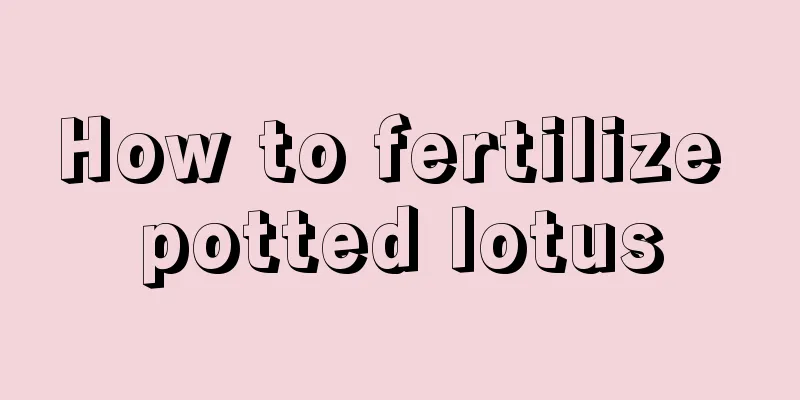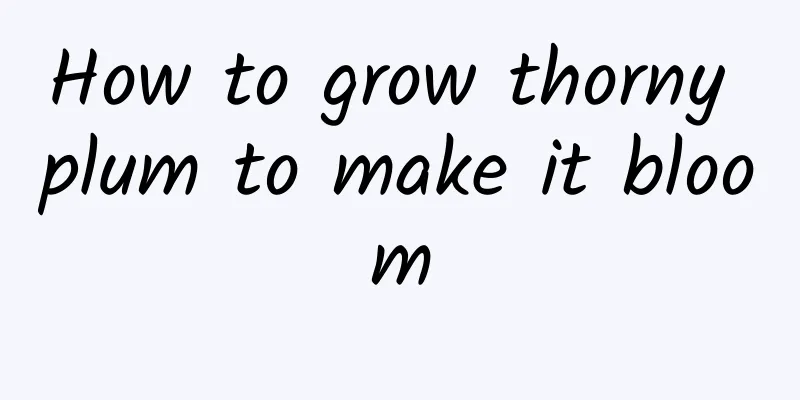How to fertilize potted lotus

Base fertilizerIf you want the lotus to bloom well, the most basic base fertilizer is essential. That is to say, add fertilizer directly into the pot when planting. So what kind of base fertilizer should be used? Animal manure, agricultural fertilizers, organic compound fertilizers ...NO NO NO ~ These are not the best choices. Just go to the flower shop and buy a bag of bone meal and sprinkle it on the bottom of the pot. It neither causes over-fertilization nor ensures sufficient fertilizer. top dressingAfter applying enough base fertilizer, you should consider topdressing. Usually, top dressing is not required, but during the growing period, top dressing should be applied appropriately according to leaf color and growth conditions. Top dressing mainly consists of urea and potassium dihydrogen phosphate. Fertilizer application amountThe amount of fertilizer applied to potted lotus must be flexible. In addition to the size of the pot, you should also refer to the nitrogen, phosphorus and potassium content in the soil. Usually, for flower pots with a diameter of 50 cm to 60 cm, in addition to adding base fertilizer, 300 grams of organic compound fertilizer should be added. For a flowerpot with a diameter of 30 cm to 40 cm, apply 200 grams of organic fertilizer. Gradually decrease according to the size of the flower pot. Different types of fertilizationLarge breedThe leaves are larger, the flowers bloom more, and the leaves turn yellow easily. When fertilizing, apply more nitrogen fertilizer, and urea has a significant effect. Small and medium varieties Small and medium-sized lotus flowers have relatively more layers of petals and relatively soft stems, which are very easy to bend and fall over. When fertilizing, you should increase the amount of phosphorus fertilizer appropriately, especially during the flowering period, when phosphorus fertilizer should be used as the main fertilizer. Fertilization for dryland and pond cultureLotuses that are directly planted in pots on the ground are called dry cultivation, while those that are grown in ponds are called pond cultivation. When applying top dressing, add appropriate amount of potassium dihydrogen phosphate. Dry farmingFor dry farming, apply fertilizer directly into the pot, and adhere to the principle of small amounts and multiple times. Depending on the actual situation, observe the growth of the lotus in about a week and add appropriate amounts. Pond cultureMix urea and potassium dihydrogen phosphate in a 1:1 ratio, mix with clay, roll into small balls with your hands, wrap them in newspaper and stuff them into the potting soil. |
<<: How to propagate hydrangeas by bud grafting
>>: How to propagate the million bells
Recommend
The meaning and legend of magnolia
legend The legend of magnolia has the colors of t...
How to grow ginseng fig and make its roots grow bigger?
1. Breeding methods 1. Light: It likes light and ...
How often should I water the fiddle-leaf fig?
How often should I water the fiddle-leaf fig? The...
How to judge the appropriate watering time for Monstera
Monstera is a plant with a very developed root sy...
How to prune Rieger Begonia
The necessity of pruning Rieger Begonia The branc...
The difference between California poppy and corn poppy
1. Different appearance California poppy: It is a...
Cutting method of big-leaf begonia: suitable season, cutting illustration
1. Cutting season Bigleaf Begonia cuttings can be...
How do roses bloom?
1. Breeding methods 1. Light: Roses like light, a...
Does Pennefleur prefer shade or sun?
Does Pennefleur prefer shade or sun? Pogostemon c...
What to do if the tips of Chunlan leaves dry up
Pests and diseases The main reason for the drying...
Are violets poisonous? Are they suitable for indoor cultivation?
1. Is it toxic? The whole plant of violet is non-...
Break off a branch and pinch a leaf... the Kalanchoe will bloom
Stem top propagation Cutting time: All year round...
How to save aloe vera root rot
1. Main reasons (1) Too much watering: Aloe vera ...
How to propagate violet spider plant and what to pay attention to
How to propagate violet spider plant There are fo...
How often should potted morning glory be watered?
1. Spring watering As for morning glory, it can u...









